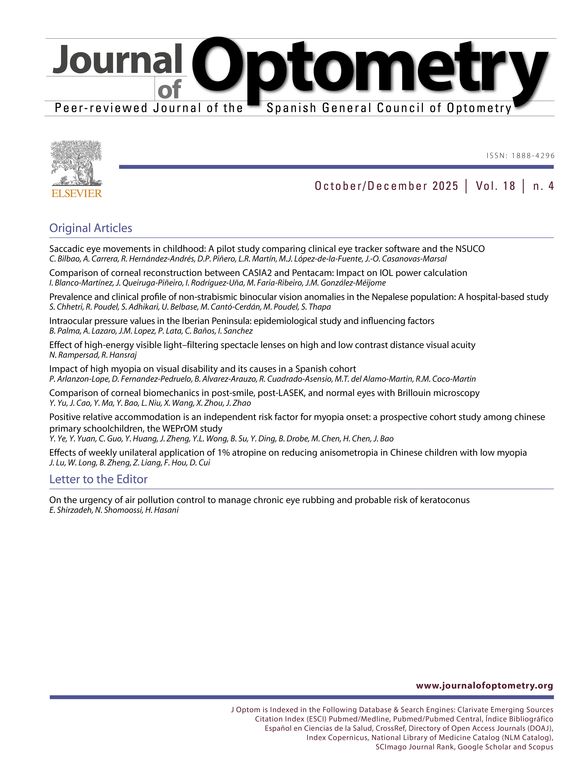Dear Editor,
We read with keen interest the recently published study titled "Prevalence of refractive error within a Portuguese sample of optometric records" by V.L. Carneiro and J.M. Gonzalez-Meijome.1 We want to congratulate the authors for their invaluable contribution to the field of ophthalmology. While we appreciate the authors' efforts, we would like to raise some questions and suggestions for further analysis in the future.
The study relies on a non-probability sampling method, which may introduce selection bias.2 Individuals who seek eye care may not be representative of the general population, and the findings may not be easily generalized. The study only includes optometric practices from 10 out of 20 districts in Portugal. This limited geographic coverage may not accurately represent the diversity of refractive errors across the entire country.3 The study compares its findings with a study conducted in 2009, highlighting potential temporal differences. Refractive error patterns can change over time, and comparing results from studies with a significant time gap may not provide an accurate reflection of the current situation.4
The study lacks detailed demographic information, such as socio-economic status, educational level, and ethnicity. These factors can influence the prevalence of refractive errors and should be considered for a comprehensive analysis.5 The study lacks a control group or a comparison with a general population, making it challenging to determine whether the observed prevalence rates are significantly different from the overall population.6
The study provides prevalence rates but lacks an in-depth discussion of the clinical implications of the findings. For instance, the study could explore potential reasons behind the observed trends and their implications for public health and eye care services. We believe that the authors' commitment to advancing optometry and ophthalmology will lead to further research and improvements in the field. Your guidance and consideration of these suggestions would be highly valuable in ensuring the study's continued impact and relevance.
Financial disclosureNil








